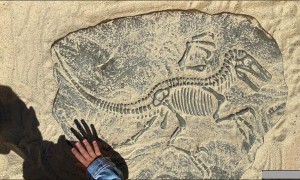Japanese Prime Minister Shinzo Abe has visited the controversial Yasukuni Shrine, sparking outrage across Asia, especially in China and South Korea. Chinese foreign minister Wang Yi summoned the Japanese ambassador on Thursday to lodge "strong opposition" to the visit.
Shinzo Abe’s visit to the shrine is the first by a sitting Japanese prime minister since 2006.
Abe made the visit, despite knowing it would surely infuriate China and South Korea, both victims of Japan’s brutal wartime aggression.
The prime minister said his early Thursday visit was not meant to hurt the feelings of Japan’s neighbours, and that he hoped to further build a friendly relationship with them..
But that now seems almost impossible, at least in the short term.
Japan’s neighbours see it as a symbol of Tokyo’s unrepentant attitude and say it represents a misguided view of its warmongering past.
"Some Japanese politicians, on the one hand, pay lip service to freedom and peace, and on the other hand they are raising the banner to call upon the dead soul of militarism by beautifying aggression and colonial history. this is a desecration of democracy, freedom and peace,” said Qin Gang, spokesperson of Chinese Foreign Ministry.
"Prime Minister Abe’s visit to the Yasukuni Shrine shows that he has a wrong perception of history. It is an anachronistic act, which is fundamentally damaging the ties between South Korea and Japan as well as stability and cooperation in Northeast Asia," said Yoo Jin-Ryong, spokesman of South Korean government.
The US, Japan’s ally across the Pacific also said on Thursday it’s disappointed by the visit.
The visit came exactly 12 months after Abe took office, a period in which he has neither met China’s President Xi Jinping nor South Korea’s president Park Geun-Hye.
The shrine supposedly enshrines 2.5 million souls of Japan’s war dead, including several high-level officials executed for war crimes committed during the Second World War. Names of the 14 Class A’ war criminals were added secretly to the shrine in 1978.
But aside from symbolic visits, for Japan’s neighbors and observers of the region, the more worrisome trend is the country’s increasing nationalism and sharp turn to the right. One flashpoint is Abe’s support for revising Japan’s pacifist constitution and expanding its military.
And on that, the Chinese military is taking heed.
"For historical reasons, any move by Japan to adjust or expand its military will draw the attention and vigilance of its Asian neighbors and the international community. The Chinese army remains on high alert for any moves that may threaten national security and will take forceful measures to safeguard national sovereignty and security," said Geng Yansheng, spokesman of China’s Defense Ministry.
Back in January, Abe revived a panel on education reform that many historians predict will put his revisionist theories into practice, so that future generations won’t learn about the country’s worst crimes from World War II.







